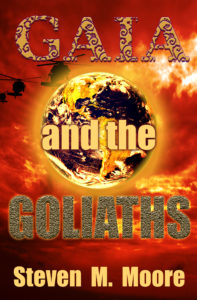Kurt Vonnegut on sci-fi…
Don’t think miracles are happening when I say that I finally found a NY Times “Book Review” issue that wasn’t better suited to paper the bottom of a bird cage. The October 24th issue celebrated 125 years of the “Book Review,” a self-congratulatory pat on the back to the Times (I suspect no one else much cared). Still, as much as I hate the “Book Review” in general and its stupid formula to determine “bestsellers” that they guard as closely as Coca-Cola’s (and equally toxic), and their critics whose blather and twaddle serves the Big Five NYC publishers, I’m also a fan of history. (Strangely enough, I read more history than historical fiction.) Or is this issue just self-serving nostalgia? No matter; I perused this issue out of curiosity. (As an ex-scientist, this old tomcat is still curious.)
There are some old reviews, interviews, and essays in this issue that are worth noting, among them a review of Conan Doyle’s The Lost World (1912), an interview with Ralph Ellison (1952), and a few others. Also contained therein is the “First Bestseller List,” which, if anything, proves that the Times has consistently featured very little that appeals to my reading tastes.
But I found an essay by Kurt Vonnegut, “On Writing Science Fiction” (1965), that was perfectly delightful. (Hmm. The other two articles noted above also indicate my interest in sci-fi—Ellison wrote The Invisible Man.) Of course, I was just a freshman in college when Vonnegut’s essay was originally published, so it’s not remarkable that I missed it. I’d written my first sci-fi novel and some sci-fi short fiction before that, but I trashed the novel when I left for college; the short fiction either was packed away in boxes in my mother’s attic or lost.
Vonnegut has always been a hero of mine, mostly for his essays. A Man without a Country (on my bookshelf, both my physical one and the web page) is a classic collection of his essays—irreverent, cynical, and anti-status-quo opinion pieces, many about reading, writing, and publishing that often point out how stupid human beings can be (Einstein had the right idea there). I’m now wondering if I’d even written any sci-fi if I’d read his essay on sci-fi before starting on my publishing journey!
Like many of his essays, the one reproduced in the special edition of the “Book Review” is full of cynical commentary, most of it as true today as in 1965, if not more so, except for his laudatory comments (for Vonnegut) about ‘zines, Playboy in particular (okay, maybe “laudatory” isn’t the right word, especially for Playboy). (‘Zines now are useless for publishing short fiction, and anthologies and collections never sell well either.)
Vonnegut clearly didn’t want to be pigeon-holed as a sci-fi writer; I don’t either. In fact, I’ve probably written more mystery/thriller stories than sci-fi ones. (I’m double-counting here—for example, the “Clones and Mutants” and “Mary Jo Melendez” trilogies.) I’d like to amplify Vonnegut’s main points that go beyond the “sci-fi writer” label.
First, “writer” is too general a descriptor for what Vonnegut was, or I am. A writer can be anyone who uses language. A person writing for an ad agency or a greeting card company is a writer. “Storyteller” and “essayist” is a bit more specific yet general enough to describe what he did and I do. If you think there’s too much technology and science in some author’s stories, go ahead and call them sci-fi if you like, but they’re often just stories about human beings (or ETs)—the characters—doing some interesting and/or remarkable things—the plots. And I’d never call an essay—for example, this one—sci-fi!
So Vonnegut’s main point about storytelling is one I harp on a lot: Genres are just some key words now, among many others, used to describe stories storytellers tell. He doesn’t say this explicitly, but it’s implied and explains why he doesn’t want to be called a sci-fi writer.
In any case, I’ll keep Vonnegut’s essay around, if not this whole issue of the “Book Review.” There aren’t that many storytellers and essayists who have motivated me to tell my own stories and write my essays. Vonnegut is one of them.
***

Comments are always welcome.
Gaia and the Goliaths. This last novel (so far!) in the “Detectives Chen & Castilblanco” series is my only novel with an environmental theme. Russian and US fossil-fuel conglomerates are the villains, environmental activists are the victims, and Chen and Castilblanco’s homicide case that begins in NYC expands to involve a conspiracy of national and international proportions. This story also highlights much of the environmental debate currently going on and has the crime-fighting duo doing their best scrambling yet! Available wherever quality ebooks are sold.
Around the world and to the stars! In libris libertas!
